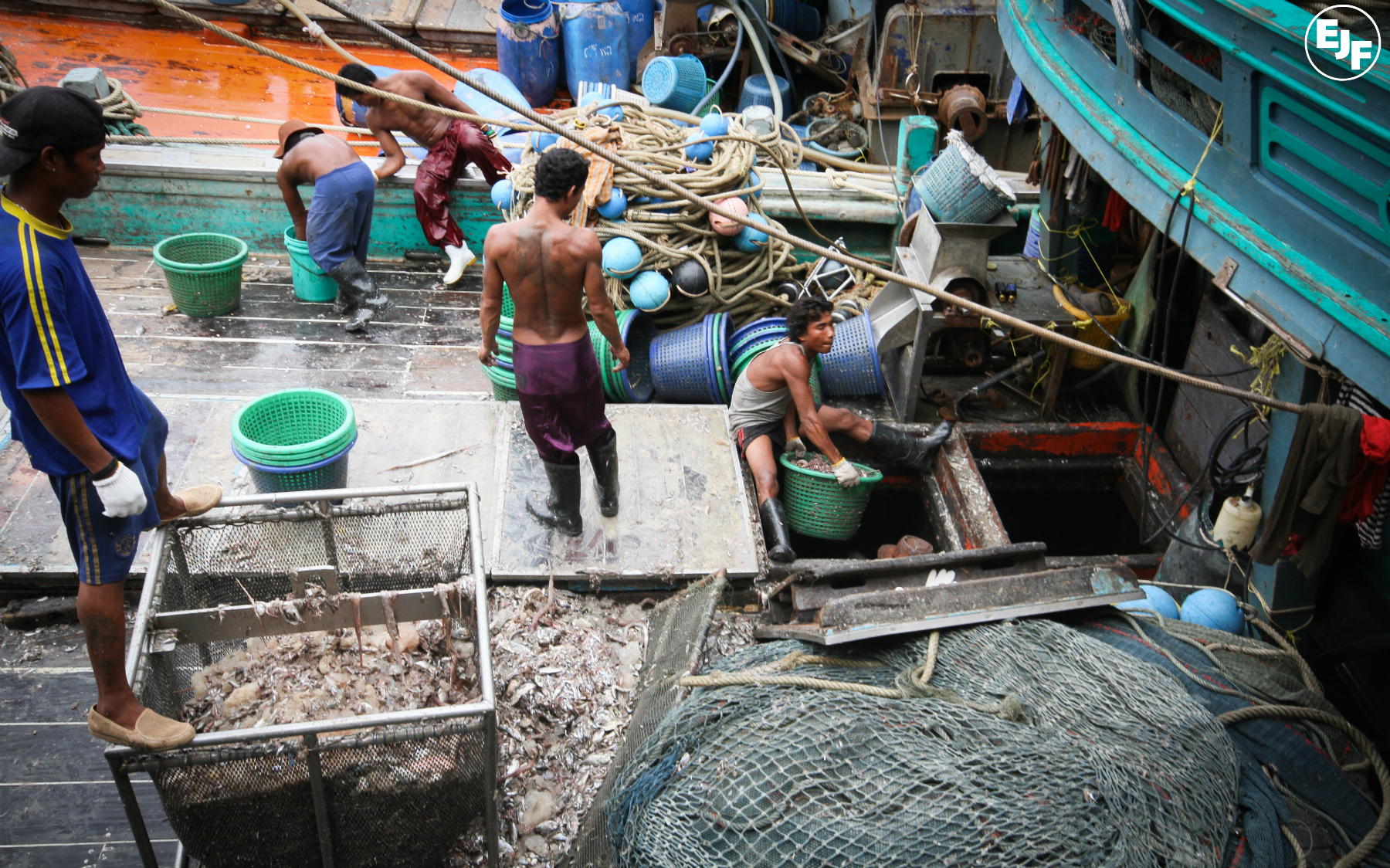
Key Suspect in EJF Human Trafficking Investigation Arrested
The Environmental Justice Foundation (EJF) welcomes the news that the key suspect in their investigation into human trafficking and human rights abuses in Thailand’s seafood industry has been arrested. EJF’s Sold to the Sea report and film, launched in May 2013, revealed evidence of human trafficking, labour abuse and the routine use of violence and murder to control workers on fishing vessels.
Sold to the Sea: Human Trafficking in Thailand’s Fishing Industry documented severe human rights abuses associated with human trafficking and included the testimonies of Burmese workers, as young as 16, trafficked in to Thailand and forced on to fishing vessels where, until their rescue months later, they were subjected to arduous, often violent, working conditions without pay.
Four of the 14 trafficking victims who were rescued from a port in Kantang, and interviewed by EJF investigators earlier this year, identified an individual named Ko Myo as the leader of a trafficking gang operating in southern Thailand’s Trang province.
This week, the Democratic Voice of Burma (DVB) media organisation reported that the Royal Thai Police and Department of Special Investigation (DSI) have arrested Ko Myo, following the capture of one of his aides on 31st July. One further individual was reportedly arrested on Tuesday.
According to the Democratic Voice of Burma “the notorious human trafficking and racketeering group are believed to have been behind approximately 40 murders and operated around the ports in Trang province’s Kantang district.”
Testimonies from the victims EJF interviewed, who mentioned Ko Myo by name:
“We were captured by the broker, Ko Myo and another guy. They told us not to try to escape. When I was sent back to the room where they kept us they beat me so badly until I lost consciousness. After three nights we were told that one of us would be executed. We had to draw straws to decide who would be killed.”
“The one who was tied up to a tree was called Mg Nge. They killed him because he helped others to run away. He was taken into a room and they tortured him, by kicking, punching and beating. Then he was taken outside and tied up to a tree. One of the followers of Ko Myo climbed up the tree and took out a nest of big fire ants from a branch and placed this nest over Mg Nge’s body. Then they went back inside the room and left Mg Nge under the sun. They drank beer and when they got drunk, they came out again. Ko Myo cut Mg Nge’s belly by using a knife. After that, Ko Myo burnt his pen and dripped hot pen over Mg Nge’s wound. I did not want to see any longer so I lay down on my bed. They took Mg Nge back inside the room and placed him beside me. I noticed that he was dead. When it went dark, they put Mg Nge’s body in a black bag and took it outside.”
Naing Htun, the labour attaché for the Burmese embassy in Bangkok (quoted by the Democratic Voice of Burma) said:
“Ko Myo, the human trafficking ring leader, was shot and captured alive at a rubber plantation in Surat Thani during a raid by combined forces from Thai government departments including the Royal Thai Police’s Anti-Human Trafficking Division and the Department of Special Investigation. Previously, the [authorities] arrested one of his aides and they managed to find out [Ko Myo’s] whereabouts following a trace from his mobile phone.”
EJF is calling on all stakeholders to work together to prevent human trafficking in Thai seafood production and bring an end to this devastating practice.